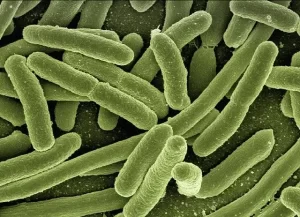Study: Past COVID-19 infection doesn’t protect against Omicron
- Did Cloud Seeding Unleash a Deluge in Dubai?
- Scientists Identify Gut Bacteria and Metabolites that Lower Diabetes Risk
- OpenAI’s Model Matches Doctors in Assessing Eye Conditions
- UK: A Smoke-Free Generation by Banning Sales to Those Born After 2009
- Deadly Mutation: A New Monkeypox Variant Emerges in the DRC
- EPA Announces First-Ever Regulation for “Forever Chemicals” in Drinking Water
Study: Past COVID-19 infection doesn’t protect against Omicron
- Red Yeast Rice Scare Grips Japan: Over 114 Hospitalized and 5 Deaths
- Long COVID Brain Fog: Blood-Brain Barrier Damage and Persistent Inflammation
- FDA has mandated a top-level black box warning for all marketed CAR-T therapies
- Can people with high blood pressure eat peanuts?
- What is the difference between dopamine and dobutamine?
- How long can the patient live after heart stent surgery?
Study: Past COVID-19 infection doesn’t protect against Omicron.
Children who had been previously infected with COVID-19 (or multisystem inflammatory syndrome in children) did not gain protection from the newer Omicron variants, according to research from the National Overcoming COVID-19 Project, based on guidance from Boston Children’s Hospital.
However, the study found that vaccination did provide protection.
These results, recently published in Nature Communications, are in line with those in adults.

“I heard parents say, ‘Oh, my kid got COVID last year.’ But we found that the antibodies produced by the child’s previous infection did not neutralize Omicron, which means that unvaccinated children are still susceptible to Omicron. Rong is sensitive.”
Adrienne Randolph of Boston Children’s Hospital said. It is reported that she launched the Overcoming COVID-19 project in 2020.
Randolph is the first author of the paper, which is reported to be a collaboration with Dr. Surender Khurana of the Division of Viral Products in the FDA’s Center for Biologics Evaluation and Research.
Researchers collected blood samples from 50 outpatients who had recovered from moderate COVID-19, 62 children and adolescents hospitalized with severe COVID-19, and 65 children and adolescents hospitalized with MIS-C. All samples were collected between 2020 and early 2021, before the Omicron variant appeared.
In the lab, scientists exposed samples to a pseudovirus (produced by SARS-CoV-2 but removed its virulence) and assessed antibodies in the samples against five different SARS-CoV-2 variants — alpha , Beta, Gamma, Delta, Omicron neutralization effect.
Children and adolescents generally showed some loss of cross-neutralization of all five types of antibodies, but Omicron had the greatest loss.
“Omicron is very different from previous variants, with many mutations in the spike protein, and this work demonstrates that it can evade the antibody response,” Randolph said. “Unvaccinated children are still susceptible.”
In contrast, children who received two doses of the COVID-19 vaccine showed higher neutralizing antibody titers against five variants, including Omicron.
Randolph hopes the data will encourage parents to vaccinate their children and teens.
According to the CDC, as of May 18, 2022, only 28% of children ages 5 to 11 and only 58% of children ages 12 to 17 had received two doses of the vaccine, numbers that have barely changed since March.
Study: Past COVID-19 infection doesn’t protect against Omicron
(source:internet, reference only)
Disclaimer of medicaltrend.org
Important Note: The information provided is for informational purposes only and should not be considered as medical advice.



